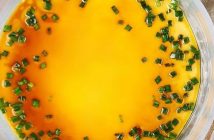
Cooking can be a fun bonding session and an alternative method of learning for children. Apart from the usual math skills needed to measure out the ingredients, language, emotional and social skills are areas that can improve through cooking. Here is a breakdown of the various areas that cooking helps.
Language and Literacy skills
Finding a recipe in a book, making a shopping list, listening and understanding spoken and written instructions are all wonderful ways to improve your child’s literacy skills.
Teacher’s tips:
- Make a short shopping list and get your children to cross them off as you put them in the trolley.
- Keep the recipe book open so you can look at it together and emphasise how you are following instructions.
- See if you can find words on packets eg sugar, flour eggs."Can you find the same word as this one in the recipe book."
- Ask how many foods can you think of that begin with, for example "s".
Maths and numeracy
Cooking is such a good way to help your child with early maths.
Weighing and measuring, counting, recognising numbers, understanding mathematical language (heavier lighter, more than less than) using money to buy ingredients at the shop.
Teacher’s tips:
- Let children hold a full bag of sugar so they begin to get a concept of 1kg.
- Pick up different packages, "feel" how heavy they are and try ordering them by weight to develop estimation skills.
- Get your children to help with weighing out ingredients.
- When decorating cakes try and put on a specific number of chocolate buttons (or whatever decoration you’re using).
- Use different shaped cutters for biscuits and help them learn 2D shape names… "Let’s make these biscuits into triangles. How many sides will they have and how many corners?"
- Don’t forget to weigh in grams. Schools are completely metric even if some of our old cookbooks still show imperial measures.
Geography
Children can learn about the different countries and climates that various foods are grown and about seasons and seasonal foods.
Teacher’s tips:
- Look on labels to talk about the country of origin.
- Talk about which foods need a hot climate to grow.
Physical skills
Holding a spoon, mixing, cutting, rolling out all help strengthen little hands and improves fine motor skills, needed for holding a pencil for coloring and writing. Looking at, tasting, smelling and touching ingredients helps children develop their senses.
Teacher’s tips:
- When making biscuits or gingerbread, let the children rub the fat into the flour to develop strength and co-ordination.
- Rolling pastry mixtures into round balls using the palms of hands will develop these skills too.
- Play "guess the smell" when you bring out new ingredients.
Science
Science is a big part of cooking. In the old days we had Domestic Science classes where we learnt how raising agents like eggs, baking powder and yeast work to change the ingredients while they cook.
Teacher’s tips:
- Introduce the idea of melting by asking what happens to chocolate when it gets hot? This introduces the important science concept of change.
- Talk about the ingredients you use and where they grow. Try sorting the ingredients for a fruit salad into 2 groups – eg which ones grow on trees and which ones don’t.
- Make sure your children understand why they need to wash hands before working with food.
Creative
Once you and your children are confident cooks and know the basics, you can have a go at changing the ingredients and create your own recipes. And you can let your creativity go wild when you are decorating cakes and biscuits.
Teacher’s tips:
- Listen to children’s ideas and let them make suggestions.
- Talk about the different flavours and colours you could use.
- Selecting their own toppings for a pizza and arranging it all themselves.
Emotional & Social skills
Cooking is an excellent way to learn to share, take turns and enjoy an activity together – and of course then you can sit down and eat together.
Teacher’s tips:
- Make something for a friend and invite them over for a tea party to eat the goodies.
- Make something with a friend or siblings and take turns and share the jobs.
Sourced from netmums.com
Photo courtesy of rolling cookies (Flickr)



